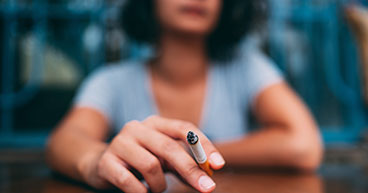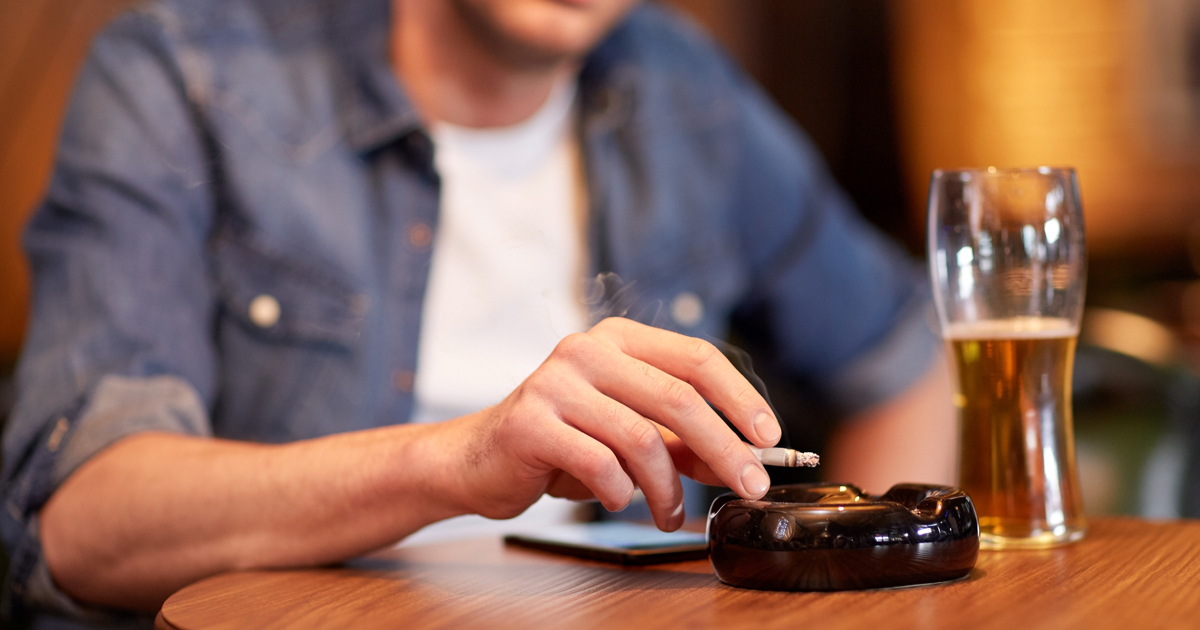
For many, the only way to start the day is with a hot, steaming cup of coffee. Whether you call it java or joe, or take it black or with cream and sugar, the drink has never been more popular.
The average American drinks two-to-three cups a day and yet the United States ranks only 25th in consumption per capita worldwide. When it comes to pure volume, however, the Americans drink about as much coffee as the next four nations combined.
A cup of home-brewed joe may have at least 95 mg of caffeine. And many of the nearly three out of four Americans jumpstart their day with a cup of the caffeinated brew, also think it benefits their health. According to information compiled by the market research firm Drive Research:
- 56 percent of Americans agree that coffee has health benefits
- Drinking coffee may reduce the risk of stroke
- Coffee drinkers have a lower mortality rate
A recent article in the American Medical Association’s AMA Ed Hub™ confirms multiple potential health benefits of java. But it cautions that people metabolize caffeine differently and should limit consumption to avoid “less pleasant effects.” Too much coffee or caffeine may raise blood pressure and cause heart palpitations, heartburn and sleeplessness.
Coffee and cancer have had a rocky relationship over the years. Coffee was once recklessly touted as a cancer treatment and later declared a carcinogen. But recent studies indicate it may help reduce the risk of certain types of cancer.
In this article, we’ll explore coffee’s connection with cancer, with topics that include:
- Is coffee a carcinogen?
- Does coffee prevent cancer?
- Is it safe for cancer patients to drink coffee?
- Are coffee enemas safe?
If you’ve been diagnosed with cancer and are interested in a second opinion on your diagnosis and treatment plan, call us or chat online with a member of our team.
Is coffee a carcinogen?
“There is no clear evidence linking coffee consumption and increased risk of cancer,” says Anthony Perre, MD, New Patient Intake Physician at City of Hope® Cancer Center Atlanta.
In fact, the World Health Organization (WHO) removed coffee from its list of carcinogens in 2016. WHO added coffee to its list of risk factors more than 25 years ago, but reversed course after more recent studies found no evidence that drinking coffee increases cancer risk.
Then why does coffee require a cancer warning label in California?
While there is no evidence coffee itself raises cancer risk, a substance formed when coffee is processed may.
“There has been some concern about acrylamide, which is formed when coffee beans are roasted,” Dr. Perre says.
In a court decision that stirred much debate, a California judge ruled that coffee sold in the state required a cancer warning because of the presence of acrylamide.
The substance is listed among 900 chemicals that require warning labels under California’s Safe Drinking Water and Toxic Enforcement Act, known as Prop 65.
Acrylamide is a chemical used in the production of some paper and plastic products. It also forms in some starchy foods cooked at high temperatures. The American Cancer Society (ACS) suggests more studies are needed to determine the link between acrylamide and cancer.
“For now, it is suggested that we may wish to reduce our consumption of other foods high in acrylamide—like French fries, potato chips, crackers, bread, cookies and breakfast cereals,” Dr. Perre says.
WHO has classified hot beverages as a probable carcinogen after the International Agency for Research on Cancer concluded that extremely hot beverages may cause cell damage and inflammation that may lead to cancer. Experts recommend not drinking hot beverages above 149 degrees Fahrenheit, or 65 degrees Celsius.
Does coffee prevent cancer?
“Some studies have shown that drinking two cups of coffee a day may lower the risk for several cancer types, including breast cancer,” Dr. Perre says. “There are probably a number of factors that may contribute to the reduced risk.”
Indeed, new research indicates that coffee may contribute to a lower risk for developing several other cancers, according to the American Institute for Cancer Research, including:
In a 2021 article, researchers in Europe pointed to “the presence of polyphenolic antioxidants and anti-inflammatory agents, including caffeine, cafestol, kahweol and chlorogenic acids” as contributing to lower risk for developing certain cancers.
However, the article also points to “important uncertainties” in many coffee and cancer studies caused by participants’ self-reporting errors regarding coffee intake and other lifestyle habits and socio-economic issues.
Is it safe for cancer patients to drink coffee?
For the most part, coffee is safe to drink for most cancer patients, says Carolyn Lammersfeld, Vice President of Integrative Care Services at City of Hope Cancer Centers Atlanta, Chicago and Phoenix.
“In general, if you drink coffee in moderation—one to two cups per day—and tolerate it, it’s probably OK for most people during treatment,” she says. “If you don’t drink coffee, there probably isn’t a good reason to start, however.”
Patients may consider cutting back on coffee, drinking decaf or unplugging the percolator all together—at least temporarily—under some circumstances.
Here’s why:
Coffee can be very acidic and may upset the stomach or aggravate nausea, a common side effect of chemotherapy.
Chemotherapy may cause taste changes, making that once-satisfying cup of coffee less appealing.
Sleep issues are among the most common side effects of cancer and its treatments. Drinking caffeinated coffee, particularly late in the day or before bedtime, may make it even more difficult to sleep.
Caffeine is a diuretic and may cause increased urination, increasing the risk of dehydration.
If weight loss is an issue, patients may want to drink a high-calorie and high-protein drink. Coffee may cause feelings of fullness without adding many calories.
“It’s always good to talk about these issues with your care team,” Lammersfeld says.
Are coffee enemas safe?
Information abounds on the alleged cancer-fighting benefits of coffee enemas. The theory behind this unusual treatment is that coffee delivered directly into the colon causes rapid caffeine absorption that jumpstarts detoxification. The treatment was part of The Gerson Therapy, named for Max Gerson, MD, who promoted detoxification through enemas, juices and organic fruits and vegetables.
In 1947, the National Cancer Institute called Gerson’s practice into question and found that cancer had progressed in all his patients. The U.S. Food and Drug Administration has not approved The Gerson Therapy to treat cancer or other diseases, and there is no evidence coffee enemas can successfully treat cancer. On the other hand, coffee enemas do come with some risks, including internal burns, colitis and infections.
Cancer patients should check with their oncologists or other members of their care team before trying new or unconventional cancer treatments and such treatments should not be considered an alternative to the normal care regimen.
If you’ve been diagnosed with cancer and are interested in a second opinion on your diagnosis and treatment plan, call us or chat online with a member of our team.



